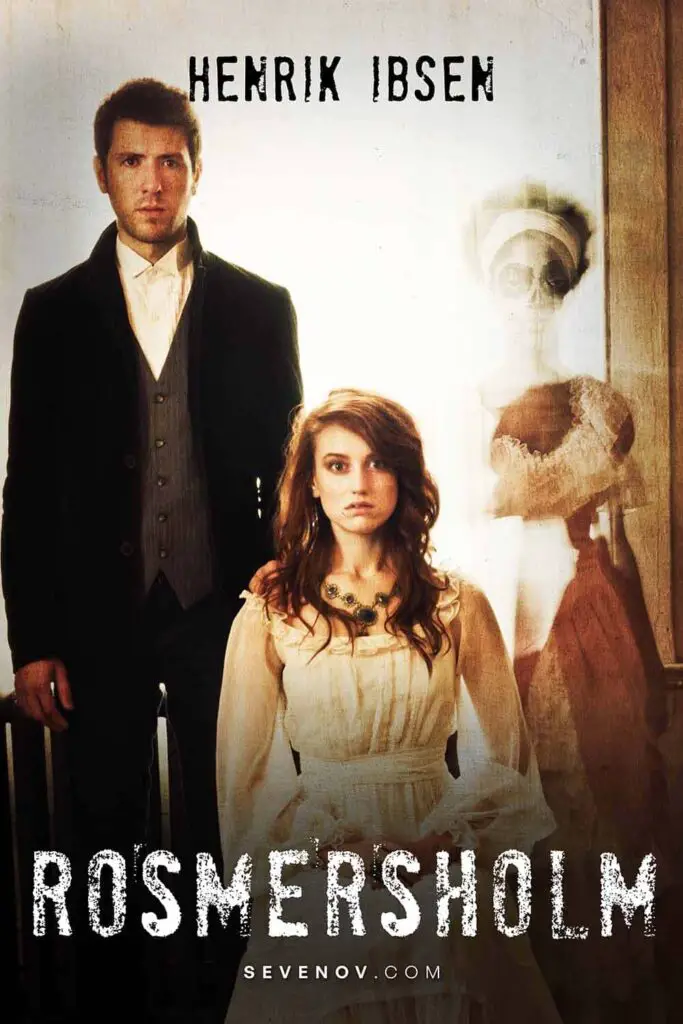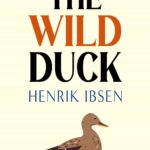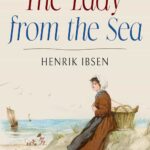
Rosmersholm by Henrik Ibsen
Author: Henrik Ibsen
Published: 1886
Genre: Drama
Read Rosmersholm online at PageVio
Rosmersholm by Henrik Ibsen is a play in four acts. It was published in 1886 and first performed in 1887. The plot revolves around a former clergyman, Johannes Rosmer, and his resident, Rebecca West, who are haunted by the suicide of Rosmer’s late wife.
Critics have praised Rosmersholm as one of Ibsen’s most beautiful, complex, and mystical plays. British novelist Rebecca West’s (Cicily Isabel Fairfield’s) pseudonym originates from this play. It was also the source of all the chapter epigraphs in J.K. Rowling’s novel, Lethal White (2018), which she wrote under the pseudonym, Robert Galbraith.
The name ‘Rosmer’ comes from the Scandinavian legend of Rosmer Havmand, a merman who lures a young woman away from the world on land to his sea kingdom. Similarly, Ibsen’s Rosmer lures Rebecca West away from the world of the living, where they cannot be together. In the last act, he asks her to prove her love for him by throwing herself into the mill race where his wife drowned.
1. Rosmersholm Synopsis
Johannes Rosmer is an aristocrat and former clergyman whose wife, Beata, committed suicide a year ago. He lives with Rebecca West, a friend of Beata who has moved into the family’s manor of Rosmersholm. Rosmer ventures into politics while dealing with the guilt left behind by his wife’s death. Although Rebecca appears to be a trustworthy friend of Rosmer, she hides a dark secret that will lead to tragedy.
2. Rosmersholm Summary
Act I
The play opens a year after the suicide of Beata, the wife of Johannes Rosmer, a former clergyman of aristocratic origin. Rosmer now lives with Rebecca West, a friend of his late wife. The two have become close friends and are attracted to each other.
Rosmer’s family estate, Rosmersholm, is an old manor house in the neighborhood of a small fjord town. At Rosmersholm, there is a legend that the ghost of a white horse will appear every time someone in the house dies. After Beata’s death, the white horse is seen again.
Rosmer is a highly respected member of his community. Apart from the prestige his former clergy position accords him, Rosmer benefits from his family name – the Rosmers have been holding high places in the state for generations.
As such, Rosmer’s friend and brother-in-law Kroll visit him to seek his support for his new paper. Kroll has just bought County News and wants to use it to oppose the radical ideas spread by his rival Mortensgaard’s paper, Searchlight.
Rosmer’s childhood tutor, Ulrik Brendel, arrives and announces that he plans to deliver a series of lectures around the country to promote political freedom. After Brendel leaves, Kroll mocks him for his lack of success. In response, Rosmer says he admires Brendel’s courage to follow his ideals.
Rosmer then shares that he now sympathizes with the radicals and has left the Christian faith. Knowing of Rosmer’s change in political inclination, Kroll is disappointed and breaks off their friendship.
Act II
Kroll comes to visit Rosmer and gives him news of Brendel. Brendel went to a tavern where he condescendingly preached to the drunkards. This fiction caused him to be thrown out into the gutter.
Afterward, Kroll confronts Rosmer about Beata’s death. Rosmer insists that Beata took her life due to mental illness, but Kroll insinuates she did so because she wanted Rosmer to be free. Before her death, Beata told Kroll she had little time left as her husband must marry Rebecca immediately. Rosmer is outraged by Kroll’s suspicion that he and Rebecca are lovers and shows him the door.
Kroll leaves and Mortensgaard enters. Mortensgaard has heard of Rosmer’s political conversion and wants him to support his left-wing paper, ‘Searchlight.’ He advises Rosmer to keep his apostasy a secret so he can give the radical party a ‘Christian element’ and help them appear more respectable.
After Morternsgaard leaves, Rosmer reveals his fears about their future to Rebecca and how Beata’s death has haunted him. He then proposes to Rebecca, asking her to be his second wife. She turns him down, saying they can’t be together, and she refuses to explain why.
Act III
Rosmer and Rebecca discover that Kroll has published slanders about Rosmer in the “County News.” He also alluded to their scandalous relationship in the paper. Although he is troubled by Kroll’s subtle accusation, Rosmer admits that it is not groundless; he did love Rebecca when Beata was alive.
Overcome with guilt, Rosmer blames himself for Beata’s death. He believes that Beata killed herself so he might be free to marry Rebecca. To appease Rosmer’s conscience, Rebecca confesses that she encouraged Beata to take her life. Initially, Rebecca did this to increase her influence over Rosmer, but later, she fell in love with him. It was because of her guilt that she rejected Rosmer’s proposal.
Rosmer asks Rebecca to prove her love for him by committing suicide as his wife did, jumping into the mill race. Rebecca agrees, and Rosmer decides to join her as he thinks that they can’t be together in this life. The pair jump into the mill race as the housekeeper, Mrs. Helseth, exclaims that “the dead woman has taken them.”
3. Characters
- Johannes Rosmer – A former clergyman and the master of Rosmersholm.
- Rebecca West – A resident at Rosmersholm.
- Professor Kroll – Rosmer’s friend and brother-in-law, a schoolmaster.
- Ulrik Brendel – Rosmer’s childhood tutor
- Peder Mortensgaard – A newspaper editor.
- Mrs. Helseth – The housekeeper at Rosmersholm.
| Henrik Ibsen Bibliography | |
| Dramas | Catiline | The Burial Mound | Norma, or A Politician’s Love | St. John’s Eve | Lady Inger of Ostrat | The Feast at Solhaug | Olaf Liljekrans | The Vikings at Helgeland | The Mountain Bird | Love’s Comedy | The Pretenders | Brand | Peer Gynt | The League of Youth | Emperor and Galilean | The Pillars of Society | A Doll’s House | Ghosts | An Enemy of the People | The Wild Duck | Rosmersholm | The Lady from the Sea | Hedda Gabler | The Master Builder | Little Eyolf | John Gabriel Borkman | When We Dead Awaken |




